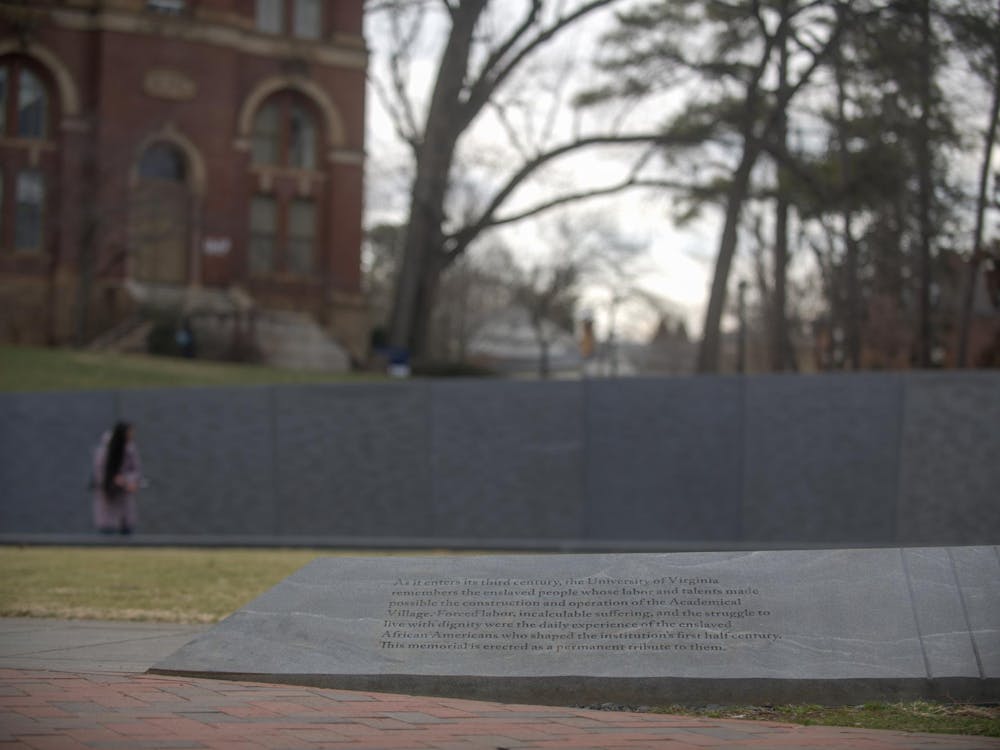Thomas Jefferson is known as a Renaissance man. He was a lawyer, a political pundit and leader, an architect, a scientist, a farmer, an ambassador, the founder of our University and America's first wine connoisseur. In addition to his many political offices, which included secretary of state, vice president and president, Jefferson held the unofficial title of being the presidential wine sommelier under George Washington, John Adams, James Madison and James Monroe.
Jefferson's tenure in France as ambassador from 1785 to 1789 provided him with ample opportunities to sample world-class wine and to hone his skills as an expert. According to his letters, Jefferson favored the wines of Bordeaux, France, which he described as "silky" and "velvety." Given the amount of attention shed on Jefferson's wine interests in the popular press and the fact that his name appears on numerous bottles in Virginia, we can easily imagine Jefferson as a master judge of quality viticulture. We can even visualize sharing a bottle of Cabernet Sauvignon with him while debating its complex aromas and flavors.
But the historical Jefferson was concerned with more than judging quality wine for his own palate and cellar. He had important political, cultural and scientific objectives. In short, Jefferson was more interested in wine as a public phenomenon than as a private interest.
First, he used wine knowledge toward diplomatic ends while in Paris. Wine acted as a lubricant for conversation that allowed Jefferson to take part in the aristocratic elements of French leadership. Unlike other alcoholic beverages such as beer and hard cider, wine was the result of a long and difficult process. Each step of the procedure -- growing grapes, fermenting the juice into wine, barrel ageing, bottling and storage -- contributed to minute attributes that could be discussed and debated in genteel circles. Conversing about wine necessitated knowledge about wine-making practices as well as European regions. It behooved Jefferson to know which grapes were grown in Alsace, what techniques were used in the Italian Piedmont and the best vineyards in Germany.
Always the willing student, Jefferson toured the wine regions of Europe and took meticulous notes. While ambassador, he used his knowledge to impress French dignitaries. Throughout the 17th and 18th centuries, European pundits criticized the lack of civilization in British America and portrayed colonists as crude frontiersmen surrounded by incorrigible native savages. Pundits hypothesized that America's lack of civilization and rejection of the aristocratic elements of society prevented the creation of a viable political system. Among other tactics, Jefferson conversed about fine wine and demonstrated that Americans could aspire to higher levels of refinement and civilization.
When Jefferson returned to America in 1789, he immediately ordered cases upon cases of European wine to educate Americans and to impress foreign visitors. As the presidential wine consultant, he ensured international political events offered wines from modish regions and villages in Europe, a choice that demonstrated great refinement and education.
Second, Jefferson's interest in wine demonstrated his involvement in scientific debates. For one, he believed wine could aid one's health by dilating the circulatory system. Jefferson drank wine mixed with water and ice as a way of ingesting its medicinal benefits without succumbing to drunkenness. To be sure, the choice to mix fine wine with ice or water greatly impeded his ability to judge quality wine.
Additionally, Jefferson's imperative to grow wine at Monticello stemmed from his desire to diversify Virginia's agricultural economy, which was formally dominated by tobacco, and to disprove scientific theories of natural degeneration popular in Europe. For example, a French thinker known as the Comte de Buffon asserted that a cloud of noxious gas engulfed the American continent and shrunk all the animals, plants and people, making them all inferior and poisonous. In 1773, Jefferson spearheaded a movement to import Italian vines to Virginia from his international contact, Philip Mazzei. Hoping to show that Americans could grow quality grapes and make world-class wine, Jefferson optimistically planted vines at Monticello. If Europeans tasted a refined wine grown in American soil, theories of natural degeneration would be debatable.
Unfortunately, because of Virginia's soil composition and climate, Jefferson was never able to reach his goal, sparking many harsh European criticisms. In 1796, a young Irish visitor to Monticello named Isaac Weld, Jr. wrote, "Several attempts have been made in this neighborhood to bring the manufacture of wine to perfection, none of them however have succeeded to the wish of the parties."
Weld looked forward to a time after much experimentation when America had mastered the "particular kind of vine and the modes of cultivation best adapted to the soil and mountains" surrounding the Shenandoah Valley. Jefferson's continuing interest in viticulture reflected his need to engage in scientific debates concerning America's natural environment.
Although Jefferson's enthusiasm for wine depended on political and scientific dimensions tied to his own era, there are still significant commonalities with the present age. Wine was a consumer product that unfairly determined social status and personal worth. The actual quality of wine often took a back seat to the fact that it came from a chic vineyard in Bordeaux or Tuscany. Fashion was supported by subjective demand and the illusion of refinement, though not necessarily quality.
On a more positive note, we can look back at Jefferson's time and see the nexus of a globalizing world that required new knowledge and offered a plethora of experiences and adventures. We should seek knowledge not to impress pretentious aristocrats as Jefferson did, but rather to forge new friendships and connections with people or places that seem foreign.
Jeff's column runs biweekly Wednesdays. He can be reached at katra@cavalierdaily.com.






